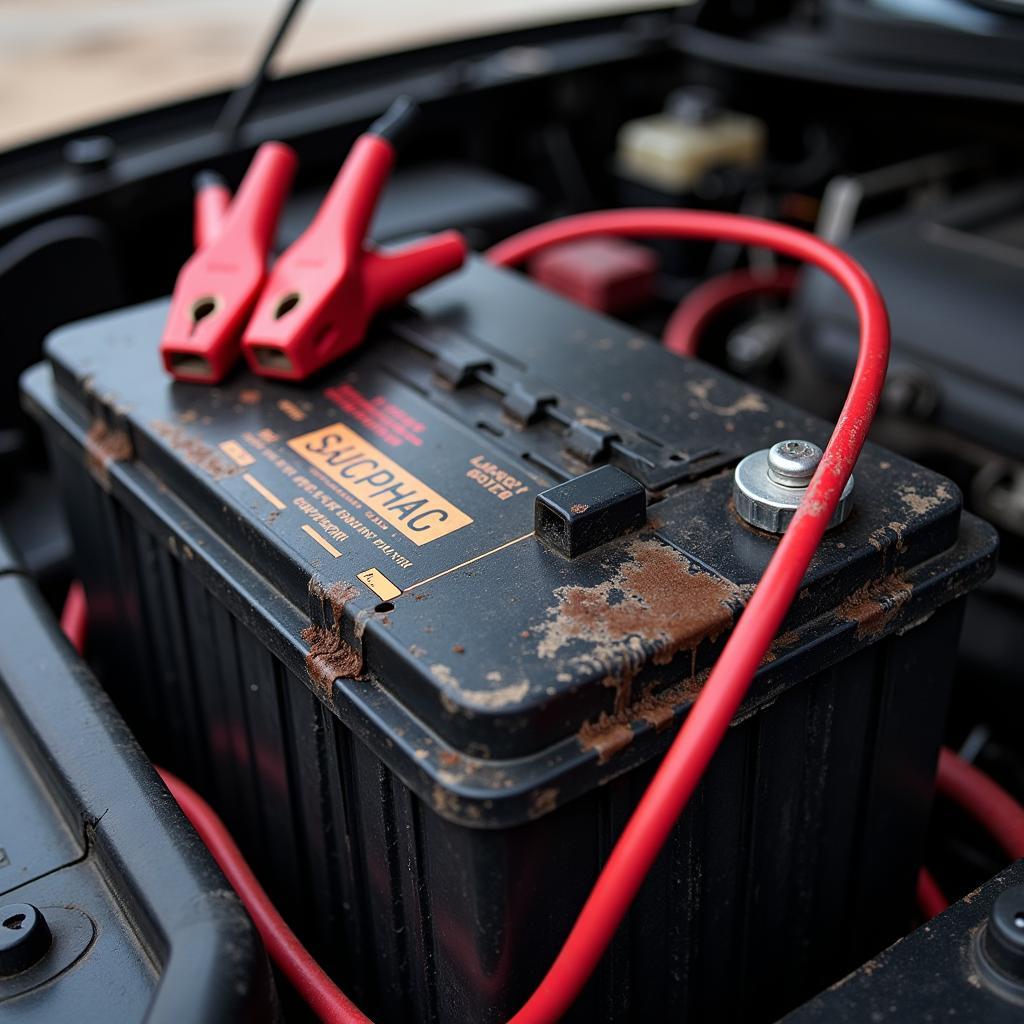Diagnosing car starting problems can be frustrating, but with a systematic approach, you can often pinpoint the culprit. This guide provides a step-by-step process to help you Diagnose Car Starting Problems, whether you’re a car owner, a mechanic, or an automotive technician.
Understanding the basics of how your car starts is the first step in diagnosing starting problems. The process involves the battery, starter, ignition system, and fuel system working in harmony. If one component fails, the whole process can come to a screeching halt. For instance, a faulty alternator in a 1998 Lincoln Town Car can lead to starting issues, as discussed in more detail at 1998 lincoln town car alternator problems.
Common Car Starting Problems
Several issues can prevent your car from starting. Some of the most common culprits include a dead battery, a faulty starter, a bad ignition switch, or a problem with the fuel system. Less common, but still possible, are issues with the car’s computer system or security system. Pinpointing the exact problem requires a methodical approach, starting with the simplest checks and moving towards more complex diagnostics. You might also encounter clutch-related problems, especially in used cars, as highlighted in used car clutch problems.
 Dead Car Battery Preventing Engine Start
Dead Car Battery Preventing Engine Start
Checking the Battery
The first step in diagnosing car starting problems is to check the battery. A simple test with a multimeter can tell you if the battery has enough charge. If the voltage is low, try jump-starting the car. If the car starts with a jump, it’s a good indication that the battery is the problem. However, if the car still doesn’t start, the issue lies elsewhere.
Signs of a Bad Battery
- Slow cranking: The engine turns over slowly or struggles to turn over at all.
- Dim headlights: The headlights are noticeably dimmer than usual, especially when the engine is off.
- Clicking sound when turning the key: You hear a rapid clicking sound coming from the starter solenoid.
- Electrical problems: Other electrical components in the car, such as the radio or interior lights, may malfunction.
Inspecting the Starter
If the battery is good, the next step is to check the starter. A faulty starter can prevent the engine from cranking or cause it to crank slowly. You can test the starter by using a multimeter or by having a mechanic perform a starter draw test. Some older models, like the 2002 Oldsmobile Intrigue, are known for specific issues, as outlined in 2002 olds intrigue car problems.
Symptoms of a Faulty Starter
- Grinding noise when starting: A loud grinding noise when you turn the key can indicate a problem with the starter’s gear.
- Single click when turning the key: If you hear a single click but the engine doesn’t crank, the starter solenoid may be faulty.
- No noise when turning the key: If you hear no noise at all when turning the key and the battery is good, the starter motor itself may be the problem.
- Smoke from the starter: Smoke coming from the starter indicates a serious electrical problem and requires immediate attention.
Examining the Ignition System
After checking the battery and starter, the next step is to inspect the ignition system. This system includes the ignition switch, ignition coil, distributor (in older cars), and spark plugs. A problem with any of these components can prevent the engine from starting. Even seemingly unrelated issues like connectivity problems can stem from electrical faults, as discussed in car don’t have no connection what’s the problem.
Diagnosing Fuel System Issues
If the battery, starter, and ignition system are all working correctly, the problem may lie within the fuel system. A clogged fuel filter, a faulty fuel pump, or a bad fuel injector can prevent fuel from reaching the engine, resulting in starting problems. Sometimes, electrical issues can also manifest in unexpected ways, as seen with the 2004 Lincoln Town Car, documented in 2004 lincoln town car electrical problems.
Expert Insights
-
John Smith, ASE Certified Master Technician: “A systematic approach is key to diagnosing starting problems. Start with the basics and work your way through the system.”
-
Jane Doe, Automotive Engineer: “Don’t overlook the simple things. A dead battery is the most common cause of car starting problems.”
Conclusion
Diagnosing car starting problems requires a methodical approach, starting with the battery and moving on to the starter, ignition system, and fuel system. By following the steps outlined in this guide, you can effectively diagnose car starting problems and get your car back on the road. For further assistance or specialized diagnostics, feel free to connect with us at AutoTipPro. Our team is dedicated to helping you resolve your automotive issues. You can reach us at +1 (641) 206-8880 or visit our office at 500 N St Mary’s St, San Antonio, TX 78205, United States.




Leave a Reply